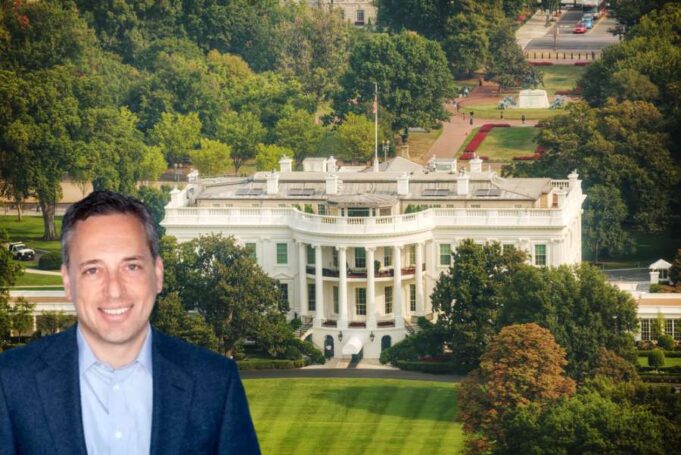President-elect Donald Trump’s decision to appoint David Sacks as the first-ever White House “AI and Crypto Czar” has ignited a mix of optimism and scrutiny across the tech and political landscapes. Sacks is a seasoned Silicon Valley figure and co-founder of PayPal. He built a reputation as a forward-thinking innovator with deep ties to the tech and crypto industries. While his appointment is widely seen as a nod to the growing importance of artificial intelligence and blockchain in U.S. economic strategy, it has also raised red flags about the potential for conflicts of interest.
A Silicon Valley Powerhouse in Washington
David Sacks brings undeniable expertise to the role. As a prominent “PayPal Mafia” member, he helped revolutionize online payments. He has since become a leading venture capitalist through his firm, Craft Ventures. His investments in cutting-edge technologies, including blockchain startups and AI firms, make him well-equipped to navigate the complexities of these industries.
Sacks’ advocacy for open-source AI and his commitment to integrating technological advancements into national defense aligns with Trump’s broader vision for a pro-industry, innovation-driven administration. Many in the tech community have lauded the appointment. They suggest that David Sacks’ leadership could help establish the U.S. as a global AI and crypto development hub.
Who is David Sacks?
Early Life and Education
David Oliver Sacks was born on May 25, 1972, in Cape Town, South Africa, and later moved to the United States with his family. He pursued his undergraduate degree at Stanford University, graduating in 1994 with a BA in Economics. Sacks continued his education at the University of Chicago Law School, earning a Juris Doctor in 1998.
Career Milestones
Sacks began his career in Silicon Valley during the late 1990s, quickly becoming a prominent figure in the tech world. His career is marked by several notable achievements:
PayPal Co-Founder
As one of the original members of the “PayPal Mafia,” Sacks served as the company’s Chief Operating Officer (COO). He played a pivotal role in scaling PayPal into a global payments giant before it eBay acquired the company in 2002 for $1.5 billion.
Yammer Founder
After PayPal, Sacks founded Yammer, an enterprise social networking platform, in 2008. The company was a significant success, often referred to as “Facebook for the workplace.” Microsoft acquired Yammer in 2012 for $1.2 billion.
Venture Capitalist and Investor
As a co-founder and general partner of Craft Ventures, Sacks has become a leading venture capitalist. His firm has backed numerous startups across sectors like AI, blockchain, and SaaS. His investments include early stakes in companies like Facebook, SpaceX, Uber, and Airbnb.
Film Producer
Sacks briefly ventured into the film industry, producing the satirical political comedy Thank You for Smoking in 2005, which received critical acclaim.
Advocacy and Industry Leadership
Sacks is a prominent voice in tech policy and innovation, particularly in artificial intelligence and blockchain technologies. He advocates for open-source AI development and has been involved in several high-profile discussions about the future of cryptocurrency regulation.
Appointment as White House AI and Crypto Czar
In December 2024, President-elect Donald Trump appointed Sacks as the inaugural “AI and Crypto Czar,” tasking him with shaping U.S. policy in these burgeoning fields. His role reflects his deep ties to Silicon Valley and his reputation as a forward-thinking innovator.
Personal Life
Sacks resides in the San Francisco Bay Area with his wife, Jacqueline Tortorice, and their three children. He is known for his philanthropic efforts and active participation in tech and political discussions.
Concerns Over Conflicts of Interest
However, Sacks’ dual role as a government official and a private venture capitalist has drawn criticism. Unlike cabinet members, his position as “czar” does not require Senate confirmation. That leaves many questioning the level of oversight that will be applied to his policymaking. Critics fear Sacks’ continued involvement with Craft Ventures could lead to policies that disproportionately benefit his private interests.
This concern is compounded by Sacks’ history as a staunch supporter of Trump. He hosted a high-profile fundraiser that reportedly raised over $12 million for the president-elect’s campaign. While his political alignment is not unusual for appointees, it underscores the perception that his ties to both Silicon Valley and Trump’s administration could create an environment where corporate interests take precedence over the public good.
The Stakes for U.S. Leadership
Sacks’ appointment comes at a critical juncture. The U.S. faces intense competition from nations like China, which have aggressively invested in AI and blockchain technologies. As the new czar, Sacks will play a pivotal role in shaping regulations that could either spur innovation or inadvertently stifle it.
Balancing these priorities will be no small task. Supporters argue that Sacks’ industry connections are an asset, enabling him to bridge the gap between the public and private sectors. Yet his detractors insist that these same connections demand heightened scrutiny to prevent favoritism or regulatory capture.
A Precarious Balancing Act
As Sacks takes on this influential role, the question remains: Can a figure so deeply embedded in the private tech sector effectively serve the public interest? His track record suggests a keen understanding of the industries he will oversee. However, the lack of a clear framework to address potential conflicts of interest casts a shadow over his tenure.
The U.S. stands at a crossroads in its approach to AI and cryptocurrency policy. Sacks’ leadership could shape the trajectory of these technologies for years to come. Whether this will result in a fair and balanced regulatory environment or one skewed toward corporate benefit will depend on the level of transparency and accountability demanded of him.
>>> Read more: Paul Atkins SEC Nomination Boosts Crypto Hopes
David Sacks’ appointment as “AI and Crypto Czar” underscores the Trump administration’s prioritization of technology as a cornerstone of economic strategy. While his expertise is indisputable, the potential risks associated with his private-sector ties warrant careful consideration. As the U.S. seeks to assert its dominance in the global tech race, the need for ethical governance has never been more critical. Whether Sacks can rise to this challenge will be a defining test of his leadership – and of the administration’s commitment to balancing innovation with public accountability.
Readers’ frequently asked questions
What exactly does the role of an “AI and Crypto Czar” entail?
The “AI and Crypto Czar” is a newly created position within the U.S. government. It is designed to centralize policymaking efforts in two rapidly evolving and critical fields: artificial intelligence and cryptocurrency. David Sacks, as the inaugural holder of this title, will be responsible for shaping federal strategies to ensure the United States remains competitive on the global stage. His duties likely include coordinating with industry leaders, developing regulatory frameworks, and advising the administration on integrating these technologies into national priorities like defense, finance, and innovation. However, the specifics of the role and its exact scope remain somewhat undefined. After all, this position does not have a historical precedent or clear legislative oversight.
How do conflicts of interest in government roles impact policymaking?
Conflicts of interest occur when a government official’s personal or financial interests could influence their professional decisions. In the case of David Sacks, his active role as a venture capitalist means he has direct investments in the sectors he will oversee as AI and Crypto Czar. This could lead to policies that inadvertently—or deliberately—favor his private business interests over the broader public good. These situations can undermine public trust in government decisions and may result in unfair advantages for certain companies.
Why is the U.S. competing with other countries like China in AI and blockchain?
The U.S. and other countries are vying for leadership in artificial intelligence and blockchain because these technologies are seen as critical drivers of economic growth, innovation, and national security. Countries that lead in AI and blockchain can shape global standards, attract investment, and gain significant strategic advantages. For example, AI is essential for advancements in defense, healthcare, and automation. On the other hand, blockchain is poised to revolutionize industries like finance, supply chain, and digital identity management. This competition is about maintaining economic competitiveness and ensuring that these technologies align with national values and interests.
What Is In It For You? Action Items You Might Want to Consider
Stay Informed About U.S. Crypto Policies
With David Sacks now influencing crypto policy, traders should closely monitor regulatory developments. His industry ties and potential pro-business stance could lead to shifts in market dynamics. Keep an eye on announcements from the White House and federal agencies. These could impact trading strategies, especially regarding compliance and tax obligations.
Diversify Investments with Policy Impacts in Mind
Regulatory clarity often boosts investor confidence and market stability. Consider diversifying your portfolio to include projects that align with potential policy shifts, such as blockchain platforms focused on transparency, security, or U.S.-based innovations. This approach could position you to capitalize on opportunities arising from favorable regulations.
Engage with Industry Updates and Advocacy Groups
Use this transition period to deepen your understanding of the interplay between blockchain technology and government regulation. Join industry webinars, follow trusted crypto news platforms, and engage with advocacy groups that influence policymaking. Understanding the regulatory environment will help you anticipate changes that could affect your trading and investment decisions.











[…] >>> Read more: David Sacks Crypto Czar: Ethics and Innovation Debate […]
[…] his first major press conference as the White House’s AI and Crypto Czar, David Sacks declared boldly: the U.S. government is no longer at war with digital assets. Instead, the Trump […]